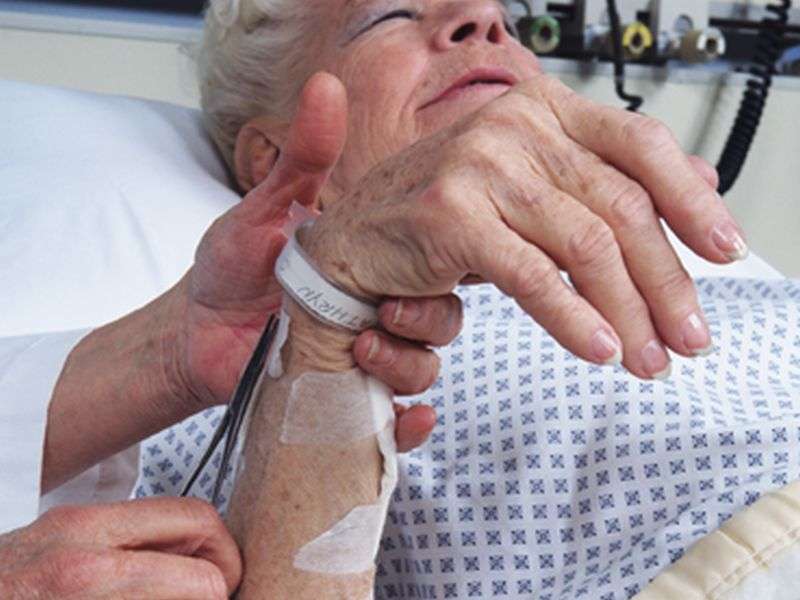(HealthDay)—The risks of adverse events are similar with short-term use of typical and atypical antipsychotic medications (APMs) after cardiac surgery in seniors, according to a study published online Feb. 10 in the Journal of the American Geriatrics Society.
Dae H. Kim, M.D., M.P.H., Sc.D., from the Brigham and Women's Hospital in Boston, and colleagues conducted a retrospective cohort study involving individuals (mean age, 70 years) undergoing coronary artery bypass grafting or valve surgery (3,706 patients). Participants were either newly treated with oral atypical (2,580 patients) or typical (1,126 patients) APMs.
The researchers found that the median treatment duration was three and two days, respectively, for atypical and typical APMs, in the propensity score-matched cohort. No large differences were seen for atypical versus typical cohorts in in-hospital mortality (5.4 versus 5.3 percent; risk difference [RD], 0.1 percent; 95 percent confidence interval [CI], −2.1 to 2.3 percent), arrhythmia (2.0 versus 2.2 percent; RD, 0.0 percent; 95 percent CI, −1.4 to 1.4 percent), pneumonia (16.1 versus 14.5 percent; RD, 1.6 percent; 95 percent CI, −1.9 to 5.0 percent), and length of stay (9.9 versus 9.3 days, mean difference, 0.5 days; 95 percent CI, −1.2 to 2.2). Compared with typical APMs, use of brain imaging was more common after initiating atypical APMs (17.3 versus 12.4 percent; RD, 4.9 percent; 95 percent CI, 1.4 to 8.4).
"More research in a larger sample of individuals undergoing different surgeries is needed to confirm these findings," the authors write.
Two authors disclosed ties to the nonprofit educational organization Alosa Foundation; two authors disclosed ties to the biopharmaceutical industry.
More information: Full Text (subscription or payment may be required)
Journal information: Journal of the American Geriatrics Society
Copyright © 2017 HealthDay. All rights reserved.
























